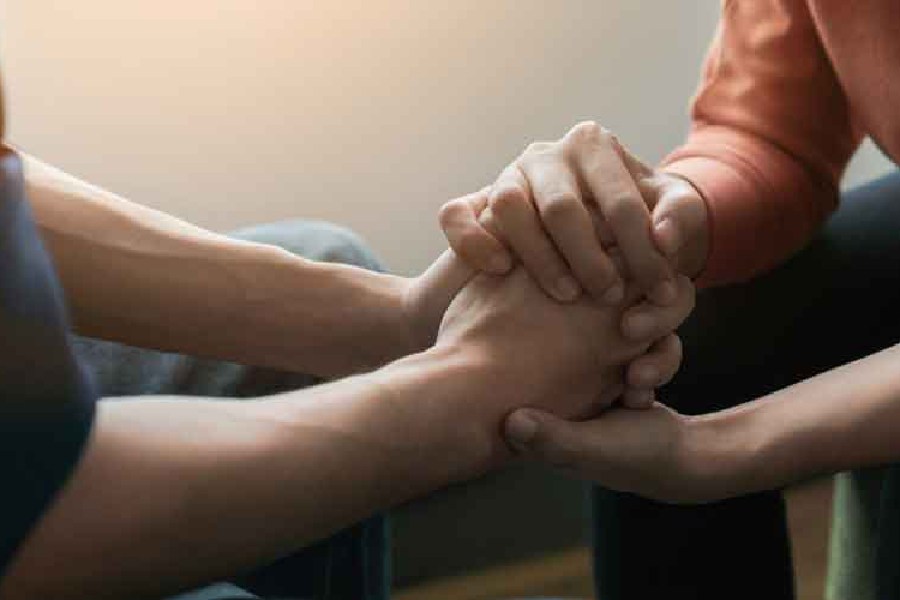The pressing need for an institutionalised mental health support system
at the ground level came to the fore at a meeting of trafficking survivors on Friday.
More than 120 women met at a hall in Barasat, North 24-Parganas, to
mark five years of two collectives that fight human trafficking.
In front of an audience that included government representatives, the survivors placed a list of demands. Improvement of the mental health support system topped the list.
“A majority of the block primary health centres do not even have a counsellor. We have to travel to a district hospital or visit Calcutta. It takes a lot of money to arrange for transport. Many survivors cannot make that trip,” said a survivor from Basirhat subdivision.
Another survivor, from Bongaon, had recently visited a psychiatrist at RG Kar Medical College and Hospital in Calcutta, more than 75km away.
“To reach the OPD in time, I had to leave home at 4.30am. If the primary health centre near my home had a counsellor, I would not have had to undertake the long trip. Even if there is a provision of a counsellor visiting the health care centre once every week, it will be of great help,” she said on Friday.
The Mental Healthcare Act, 2017, recognises trafficked survivors as a group that must receive mental health support and services.
“But only a handful of health centres in North 24-Parganas have counsellors. Most of them have no provision of mental health support,” said Sambhu Nanda, a rights activist who works with survivors in North 24-Parganas.
For a survivor, life after being rescued from traffickers is often more challenging than the life before.
“Survivors return to a hostile environment, where they have to fight stigma from family and neighbours on a daily basis. Many survivors are vulnerable to anxiety, memory loss, depression, post-traumatic stress disorder (PTSD) and often end up in substance abuse,” said a psychiatrist who has mentored survivors.
On September 11, 2022, this newspaper had reported on how the absence of counsellors at primary health centres was hurting survivors.
Friday’s meeting showed things have not changed much.
The gathering, billed as a leadership meet, was organised to mark five years of Utthan and Bijoyini, two survivors’ collectives. From free legal aid to self-help groups, the collectives are engaged in a range of activities.
Streamlining of compensation and community-based rehabilitation were among the other demands raised on Friday.
Members from the district child welfare committee, representatives from the district child protection unit, the district social welfare department, and a nodal officer from the office of the district CMOH (chief medical officer of health) were present.
“We are trying to have a mental health support system in primary health care centres at the block levels,” said the health officer. She also shared her contact details with the survivors and asked them to call her for any help.
